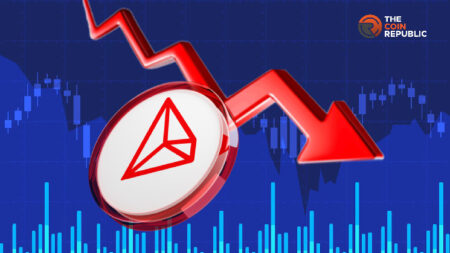Taking care of your own crypto through self-custody is the epitome of the industry and has been its fundamental proposition ever since Bitcoin was first introduced to the world.
Not your keys, not your Bitcoin.
That’s a saying anyone who’s been in the industry for more than a few weeks has heard, and it’s powerful for a reason. Crypto provides us with a means of taking full control over our funds without the necessity of using centralized third parties.
But make no mistake—self-custody does come with certain intricacies, challenges, and even risks. In this critical process, hardware wallets take center stage. That said, in today’s episode, we have Matej Zak, the CEO of Trezor, the manufacturer of the world’s first hardware wallet.
Manufacturing Hardware Wallets: What’s That Like?
It’s safe to say that the cryptocurrency industry has changed tremendously in the past years. But if there’s one thing that remains the same, it’s surely the need for enhanced security and self-custody. That’s what everyone hears about when they take their first steps into Bitcoin or most of the other legitimate altcoins, for that matter.
Being able to store your funds in a way that makes them completely inaccessible to any third party is powerful but also challenging.
Trezor’s growth over the past five years attests to the need for self-custody. Zak shared with us that the company has grown from a team of 30 people to closer to 200.
Some of you may not know this, but Trezor is the company behind the world’s first hardware wallet, the Trezor Model One, which was introduced on July 29th, 2014. Fast-forward ten years, and the company has now introduced an array of devices aimed at making the journey to self-custody much easier, less risky, and more convenient for the end user.
How to Store Your Crypto: The Right Way
We’ve all heard horrific stories of people losing their coins to scammers by signing a malicious transaction or just feeding their seed phrase into a compromised third-party app.
But it doesn’t have to be that way, provided you have the proper understanding of how to tackle self-custody properly. Zak speaks at length about some of the most important tips for beginners to consider when starting this important journey.
Make sure you really understand what self-custody is about and how the storage of cryptocurrency works. You don’t have to be an engineer, but make sure you grasp the basices.
There are plenty of resources for beginners to get familiar with some of the challenges of self-custody. We have devised a special guide that is a must-read, and you can find it here:
9 Tips For Securing Your Bitcoin and Crypto Wallets You Must Follow.
Zak also outlined fundamental tips, such as writing down your seed phrase and keeping it 100% offline, safe from other people’s access. The crux is to familiarize yourself with this combination of healthy practices. He also explained that Trezor is built in a way that guides users through the onboarding process.
Another important consideration is the ability to recover your wallet if you have lost your keys. The Trezor CEO explained that they had integrated methods of seed phrase recovery that they had created, involving fragmentation of the seed phrase and defining parameters that would allow you to access your wallet given that you get the minimum necessary requirements.
For more information, as well as alternative ways to store your invaluable keys, please tune in to the podcast itself.
The Four-Year Cycle Theory Around Bitcoin’s Halving
Given that Bitcoin’s halving has just gone through, it only made sense to also talk about it and how it might impact the market going forward.
Zak confirmed that Trezor accounts for the four-year market cycle theory but also acknowledged the fact that history is not necessarily an indication of future performance.
He said that pumps in Bitcoin’s price correlate strongly to their sales – something that probably many other crypto businesses can attest to as well.
As a hardware manufacturer, it is really important to have enough stock because it takes a long time to build these products.
I think we are prepared for the next all time high!
Read the full article here









